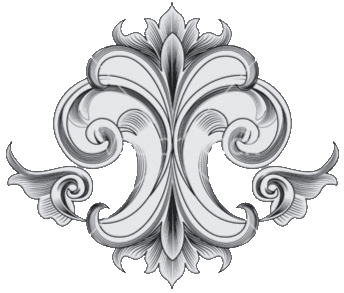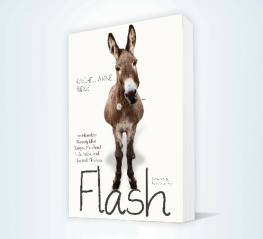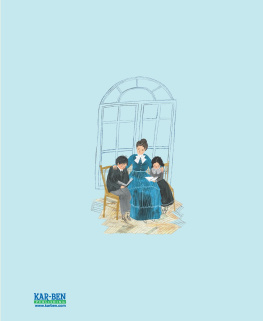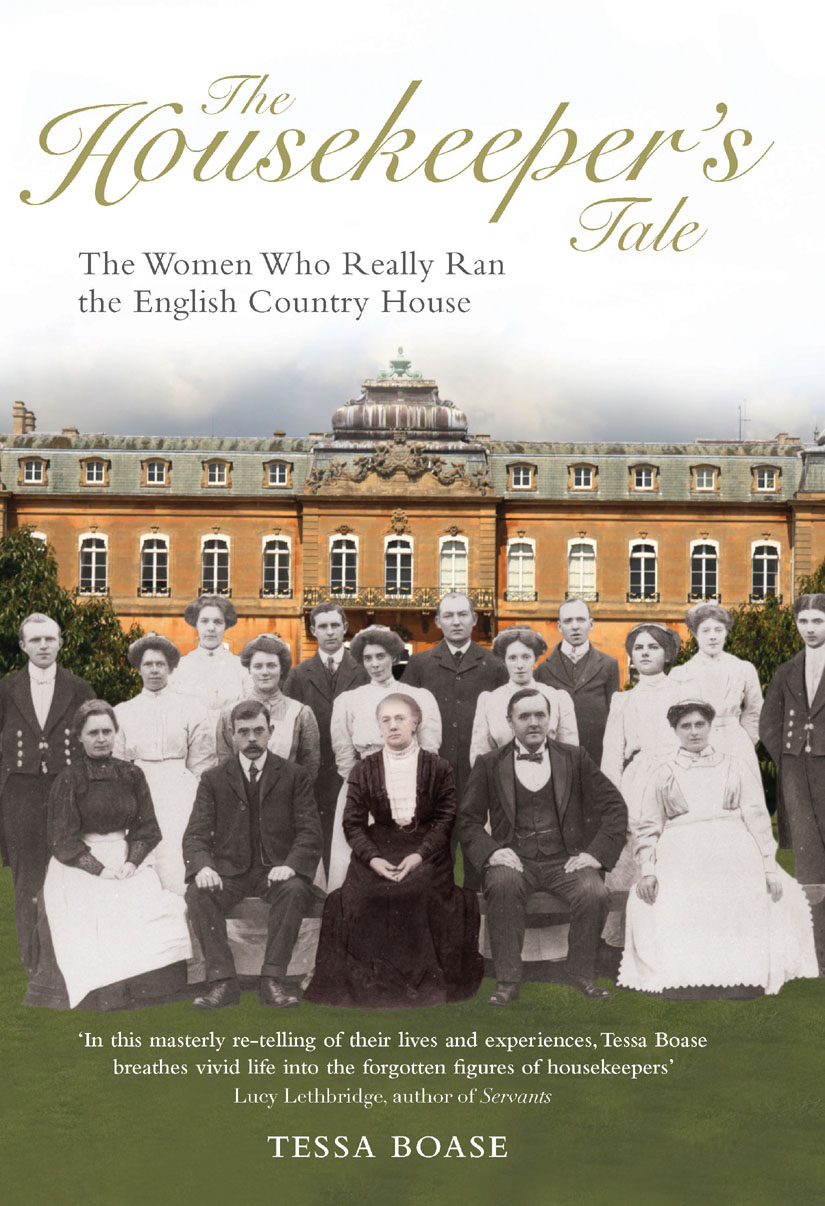This eBook is copyright material and must not be copied, reproduced, transferred, distributed, leased, licensed or publicly performed or used in any way except as specifically permitted in writing by the publishers, as allowed under the terms and conditions under which it was purchased or as strictly permitted by applicable copyright law. Any unauthorised distribution or use of this text may be a direct infringement of the authors and publishers rights, and those responsible may be liable in law accordingly
What follows is extracted from The Housekeepers Tale by Tessa Boase.
It tells the story of how these women, who were part of a wider narrative, were so central to the social tapestry of Britain yet for so long their voices lost to history. Exploring the lives of these housekeepers and the conditions of their tenureand ultimately, departurewe gain a better understanding of each of the time periods they worked in. Starting in the early Victorian period through the Georgian period and two World Wars right up to post-war Britain.
If you would like to read about the lives of the other four women, you can find them all together in The Housekeepers Tale.
Part 1

Hannah Mackenzie
Wrest Park, Bedfordshire 19141915
It wasnt so much her looksit was her character.
ROSS MACKENZIE, GREAT-NEPHEW OF HANNAH MACKENZIE


Timeline
1914-1918 | The Great War. Some 400,000 servants leave to help the war effort. |
1915 | The Tango and Foxtrot are the latest dance rage. |
1917 | Separate Fastener or Zipper patented. Cutex introduces liquid nail polish. |
1918 | Representation of the People Act: all men and property owning women over 30 get the vote. |
1922 | AGA cooker patented. BBC Radio launched: concerts and news from 6-10pm. First domestic refrigerator by Electrolux. |
1923 | First fridge freezer by Frigidaire. |
1924 | The Vac-Tric vacuum cleaner launched (12 12s). |
1925 | Toastmaster on salefirst fully automatic pop-up toaster. |
1927 | The first talking picture, The Jazz Singer with Al Jolson. |
1928 | Women get equal voting rights. |
1929 | General Election results broadcast on the wireless for the first time (Ramsay MacDonald becomes Labour prime minister). |
1930s | Corsets and bras transformed by elastic thread, or Lastex. |
I
Not A Normal Auntie
I n old age, Hannah Mackenzie was remembered for the nicotine stain in her shock of white hair and her fondness for shouting out, in a throaty American accent, Now look here, sister! and You bunch of bums! She was forceful, irreverent, a practical joker and a flirt. In her retirement she consumed one hundred Chesterfield cigarettes and a bottle of Scotch a daydelivered by relatives to her hospital bed in Northampton even as dementia set in. She also, evidently, had great charm.
Her career in domestic service spanned the Victorian industrialist middle classes, the Edwardian conservative nouveau riche, the liberal aristocracy during the Great War and the American super-rich of the Roaring Twenties. She went into service at the turn of the century, when whalebone corsets and gaslighting were the norm. She reached her prime twenty-five years later in a New York palazzo working as head housekeeper to the Vanderbilts, with shingled hair, silk stockings and a six-line telephone system. By any standards of domestic service, this was an unimaginable career for a working-class woman from Inverness.
This story shines a spotlight on one year of Hannahs careerAugust 1914 to August 1915. It is a snapshot of a great house at an extraordinary moment in time: a critical juncture in British social history. Wrest Park in Bedfordshire was the first country-house war hospital to receive wounded soldiers from the Great War. It was one of many such hospitals, but an exemplary one, and the two women who ran it were among the first in the country to experience what the war actually meant in all its horror. Amputations, gas poisoning, shell shock, shrapnel woundsthe Honourable Nan Herbert and her housekeeper Mrs Mackenzie were witness to it alland it changed them, perhaps fundamentally.
One year after her appointment, with Wrest Park Hospital at the peak of its efficiency, Hannah was forced to resign. Downstairs had become dangerous and disorderly, an unhappy place for domestic staff to workall, allegedly, her doing. What is more, the public-school-educated land agent Cecil Argles had fallen violently in love with her. Housekeeper Hannah Mackenzie was the only thing, Mr Argles confessed, that stopped him from going mad.
In researching Hannahs story I had no idea what, or how much, I would find. Many housekeepers typically left no trail behind them, especially when a great house such as Wrest Park changed hands after the First World War. All I had was one photographa formal portrait of two upper servants taken in 1914. The woman with a red cross on her implacable bosom looks at some imaginary point in the sky: this is the cook, Hetty Geyton. The younger, seated woman has an air of poise and composure: so much so, you might mistake her for the lady of the house, were it not for the bunch of keys in her lap. She is, for a servant, remarkably comfortable with the camera.
The Honourable Nan Ino Herbert kept a detailed diary of Wrest Parks role in the Great War, probably with an eye to posterity. Today an annotated version survives with the family, typed out and pasted into a series of scrapbooks by her daughter in the 1950s. This has since become the official version of events at Wrest Park: a remarkable unpublished archive crammed with small black-and-white photographs. Domestic servants form just a footnote to the narrative, but its clear that they were a source of upset and constant anxiety to Nan. The real business to her was the war, the wounded soldiers and the smooth running of the hospital. Domestic spats were not meant to be a part of this heroic story. Yet Hannah Mackenzie jumps off the pages of Nans diaryfeisty and strong-willed, a manipulative charmer, attractive to men. What the mistress wrote about the housekeeper is scant, but it is also telling. Here, clearly, was a character. Hannahs audacious story seemed to capture the texture of domestic service during the Great War: uneasy, complicated, explosive.









